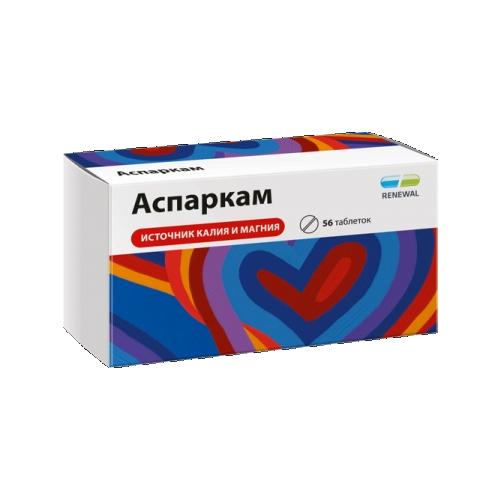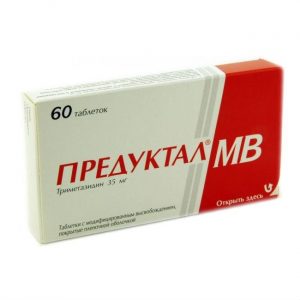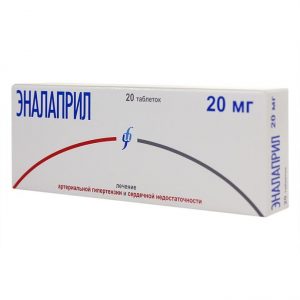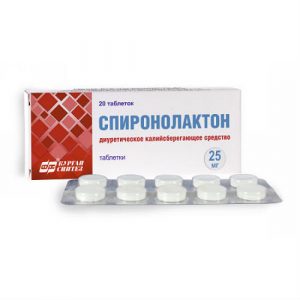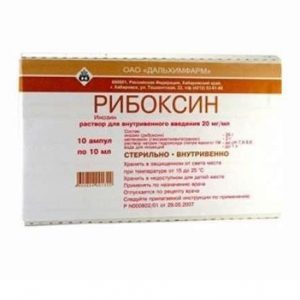Description
Release form
Tablets
Packing
56 pcs.
Pharmacological action
The mechanism of action of Asparkam is associated with the effective participation of L-asparaginate in the transport of magnesium and potassium ions into the intracellular space. Magnesium activates sodium-potassium-ATPase, removing sodium ions from the cell and returning potassium ions, reduces the concentration of sodium and prevents its exchange for calcium in the smooth muscles of blood vessels, reducing their resistance. Potassium stimulates the synthesis of ATP, glycogen, proteins, acetylcholine, etc. Both ions support the polarization of cell membranes.
The drug regulates the conduction of impulses along nerve fibers, synaptic transmission, muscle contraction, and cardiac muscle function. Due to magnesium ions, it participates in the processes of energy input and expenditure, normalizes membrane permeability, neuromuscular conductivity, DNA synthesis, RNA, cell growth, cell division, oxygen uptake and phosphate synthesis.
Pharmacokinetics
Potassium and magnesium ions are rapidly absorbed and distributed throughout all body tissues. About 30% of magnesium in plasma forms complex compounds with proteins. The excretion of potassium and magnesium occurs mainly with urine, in small quantities with feces, sweat, tears, etc. With renal failure, the excretion of potassium and magnesium ions can slow down.
Indications
To eliminate potassium and magnesium deficiency
as an adjuvant in various manifestations of coronary heart disease, including acute myocardial infarction
chronic circulatory failure
cardiac arrhythmias (arrhythmias caused by overdose of cardiac glycoside).
Contraindications
Hypersensitivity to Asparkam,
hyperkalemia,
hypermagnesemia,
acute and chronic renal failure,activity and safety not established).
Specific guidelines
No studies have been conducted to evaluate the effect of the drug on the ability to drive vehicles and engage in other potentially dangerous activities that require increased concentration of attention and speed of psychomotor reactions.
Composition
1 tablet contains:
active substances:
magnesium asparaginate 175 mg,
potassium asparaginate 175 mg
Dosage and administration
Inside, usually for adults, 1-2 tablets 3 times a day after meals.
The course of treatment is 3-4 weeks.
If necessary, you can repeat it.
Side effects
Possible nausea, dizziness,
redness of the face,
thirst,
lowering blood pressure, hyporeflexia.
hyperkalemia (nausea, vomiting, diarrhea, paresthesia) and hypermagnesemia (facial skin hyperemia, thirst, bradycardia, lowering blood pressure, muscle weakness, fatigue, paresis, coma, respiratory depression, cramps)
Drug interaction
Potassium-sparing diuretics (triamteren, spironolactone), beta-blockers, cyclosporine, heparin, angiotensin-converting enzyme inhibitors, non-steroidal anti-inflammatory drugs – the risk of developing hyperkalemia and asolitis.
Eliminates hypokalemia caused by glucocorticosteroids.
Reduces unwanted effects of cardiac glycosides.
Due to the content of magnesium ions it reduces the effect of neomycin, polymyxin B, tetracycline and streptomycin.
Anesthetics enhance the inhibitory effect of magnesium on the central nervous system.
May enhance neuromuscular blockade caused by depolarizing muscle relaxants (atracuria besylate, decametonium bromide, suxamethonium (chloride, bromide, iodide)).
Calcitriol increases the concentration of magnesium in blood plasma, calcium preparations – reduce the effect of magnesium.
Storage conditions
At a temperature of 0 to 25 ° C.
Deystvuyuschee substances
potassium and magnesium asparahynat
Terms and conditions
without prescription
dosage form
tablets
Prescribing
Nursing prescribing yu Vrach Dlya vzrosl h in naznacheniyu wizard, Beremenn m in naznacheniyu Vracha
Indications
Prevention of acute myocardial infarction, Serdechnaya failure, Violations rhythm of the heart, arrhythmia, Acute ynfarkt myocardium, Yshemycheskaya disease heart
PFC update, Russia
